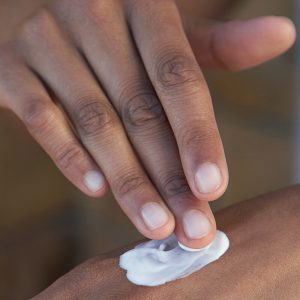$8.6bn spent on skin lightening products by women as Nigeria tops world users
April 5, 2023940 views0 comments
By Ben Eguzozie
-
Togo, South Africa follow with 59%, 35%
-
Global skin creams market projected to reach $12.3bn in 2027
Read Also:
The quest to enhance their beauty has seen women spend a whopping $8.6 billion annually on skin lightening products with Nigeria, since 2018, being the world’s largest user of skin bleaching/lightening products.
A survey by the National Agency for Food and Drugs Administration and Control (NAFDAC) has now corroborated a position long held by the World Health Organisation (WHO), which earlier identified the prevalence of the use of skin lightening (or bleaching) products among African women, especially Nigerians which leads with 77 percent above other nations of the world.
Majisola Adeyeye, director-general, NAFDAC, at a workshop for health journalists in Port Harcourt, said Togo, a fellow West African country, trails Nigeria with 59 percent in the use of skin lightening products, while South Africa comes third with 35 percent, and then Senegal at 27 percent. In all, the West African region tops the world in the use of skin bleaching products after posting an average of 49.5 percent.
The fantasy of light skin as the highpoint of beauty touches self-esteem for women of colour around the world. In many cultures, skin colour is a social standard that is regularly used by people of colour and whites alike in lieu of race.
Many believe that attractiveness, marriageability, career opportunities and socioeconomic status are directly connected with skin colour. As a result, many women of colour seek chemical remedies to lighten their complexion.
They have created a booming global business in bleaching creams and injectables valued at $8.6 billion as of 2020. A report said $2.3 billion was spent in the U.S. alone.
The global market for the skin bleaching creams is projected to reach $12.3 billion by 2027.
Adeyeye told the media professionals in Port Harcourt about the “dangers of bleaching cream” that the statistics show the prevalence of bleaching cream use in Nigeria “has become a national emergency”. Represented by the agency’s director of chemical evaluation and research, Leonard Omokpariola, the NAFDAC boss warned that the harmful effects of bleaching cream include damage to vital body organs, cancer, prolonged healing, among others.
WHO says, regardless of the benefits that the users claim, bleaching has life-threatening side effects such as skin cancer, liver damage and kidney failure, among others.
NAFDAC said it will embark on nationwide regulatory actions aimed at “stemming the use of bleaching creams and cosmetics that are harmful and injurious to the body”. Part of these measures include sensitization of the public through the media on the dangers of the products’ use, enforcement and raids of distribution outlets with seizures and destruction of violating products.
NAFDAC’s said it is cascading a train-of-trainers in the six geopolitical zones in the country as a deliberate strategy of mobilising, educating, sensitising, Nigeria’s health journalists to play frontal role in a concerted effort to eradicate the menace of bleaching creams and needless waste of scarce resources.
Abubakar Jimoh, NAFDAC’s director of public affairs, said 600 journalists have so far been trained from five earlier editions of the sensitization workshop in Abuja, Lagos, Kano, Jos and Ibadan.

